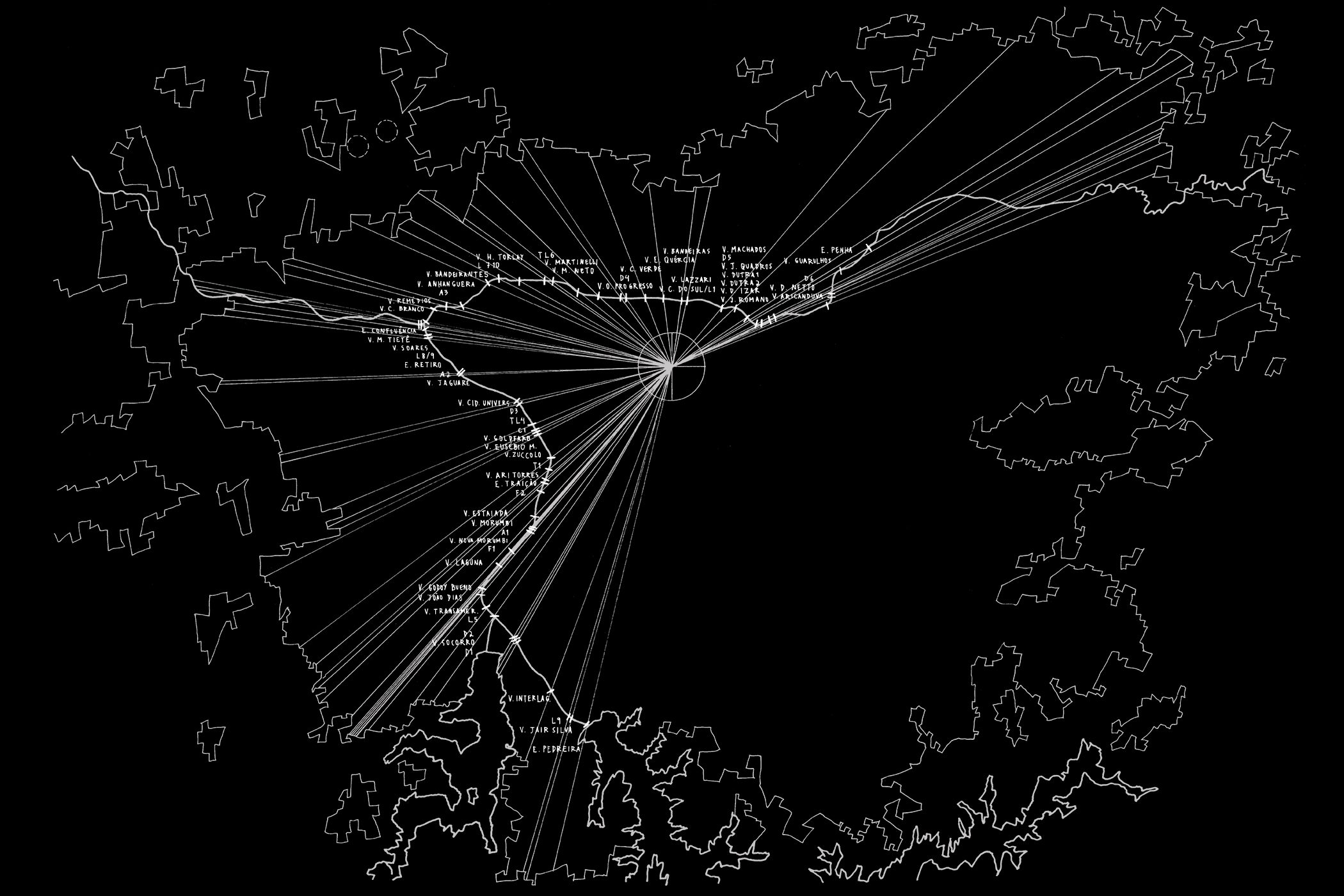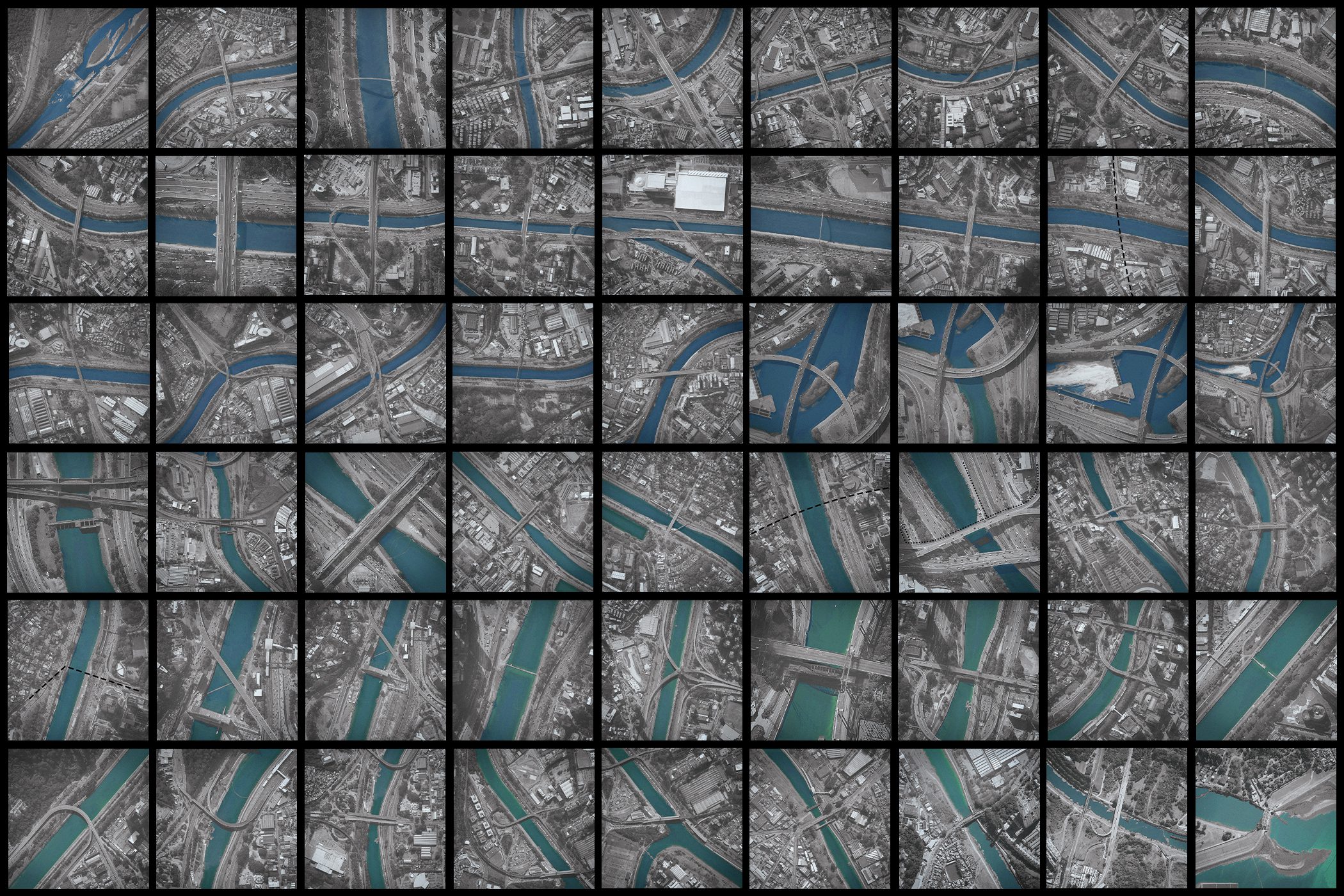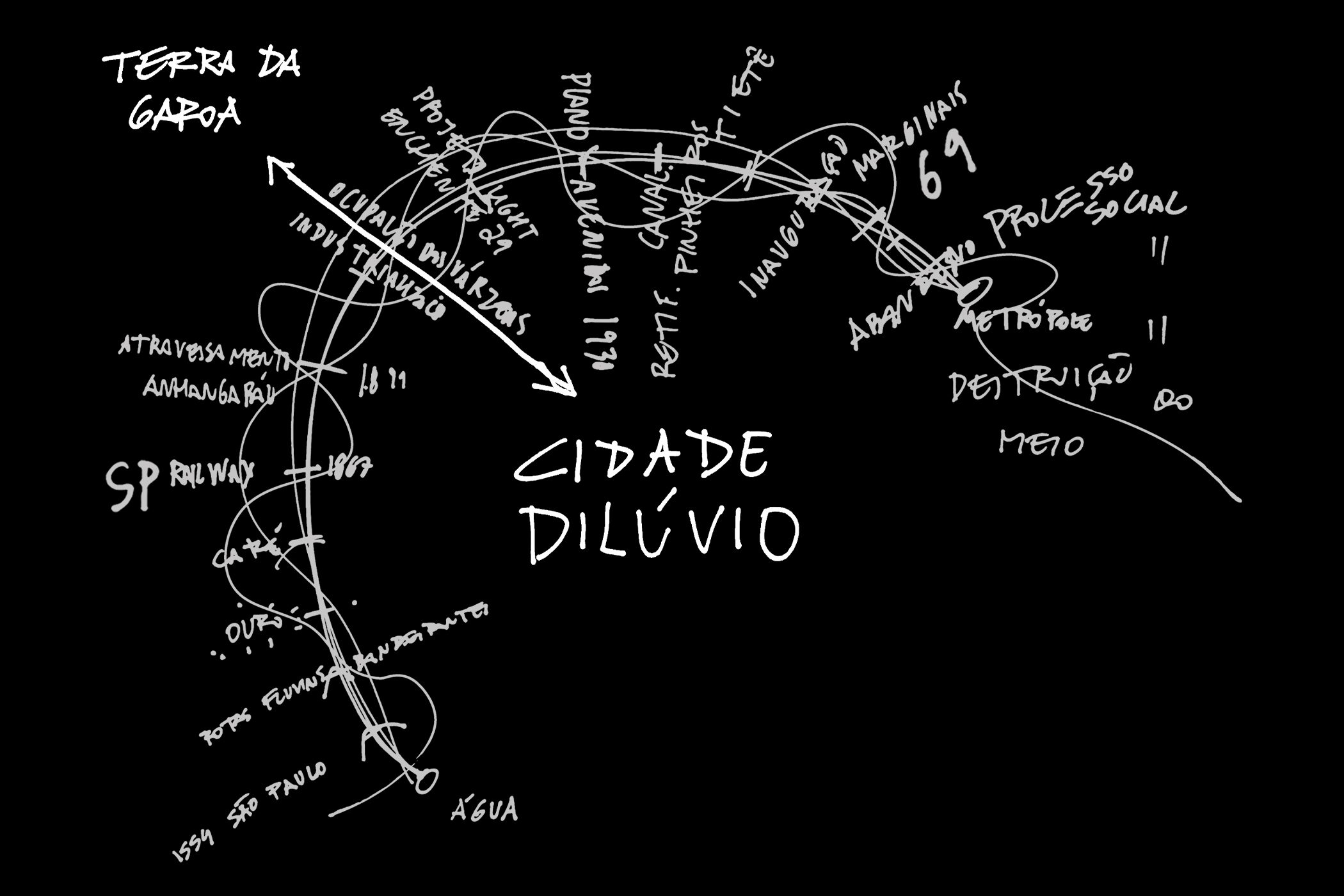Project implementation: Brazil
Project development: Brazil
Thinking in extremes allows us to act in bursts of some radicality, precisely because it understands that this action can be charged with two movements: that of reparation through reflection on what could and could be; and that of advancement, as a becoming, born of the revolt of what should never be done again.
Being a city of waterways can be an important exercise in repair, not only in repairing the meaning of things, but in searching for what was lost, torn apart, ripped out, mutilated, and, often, not even imagined.
If the city of drizzle, in a short space of time, has transformed into a city of flood—which sweeps away the weakest—the reparations we call for aim to bring us closer to both the processes of belonging by raising awareness among the population regarding their rights as citizens, and the instruments of resistance that establish the possibility of a common life. Approaches that lead us to focus on confronting the problems and, from them, consider which places, elements, and processes contribute to effective and concrete transformation.
The work "São Paulo: Cidade Dilúvio" aims to weave the practice of architectural and urban design, based on the inseparable relationship between its products and processes, giving it depth and, thus, placing it closer to the understanding of social phenomena, also stemming from natural phenomena. To this end, we rely on lines that open and reveal: the 65 viaducts, which we treat as staples—seams to bridge the great river-rift of the city we live in—present themselves as multiple possibilities for recognizing paths of confluence. There is an understanding here that being in continuous and unfinished flux is a condition and (con)formation of existence itself for those who are flux. Discovery of fertile territories full of transformative momentum.
These fraying staples, which repair their extreme movements as they do so, present us with spaces of potential public and common use, seeking new waters, respecting their particularities, in place of sluggish spaces, approaching the shallows of infrastructure and the roofs of existing buildings. Waters that can, themselves, return the construction of landscapes to life.
The proposal sees the city, ultimately, as a river and spaces as floods to, perhaps, fight for overflows of life, coming from grounds full of life brought by the water, whose objective is to trigger the political articulation of reinvention of, ultimately, other times.
The work was developed by students Tomas Lee Guidotti, Pedro Toni, Diogo da Silva, Fernando Tetsuo, Stephany Araújo, Renata, Tomita, Ana Paula Ramos, Yasmin Negri, Fernanda Vieira, Isabela Tunes, Júlia Pacheco, Leonardo Ferreira, Giovana Gare, in conversations with Fau Mackenzie teachers Antonio Fabiano, Amaral, Catherine Otondo, Renata Coradin, Luiz Backheuser, Ricardo Ramos, Viviane Rubio.




